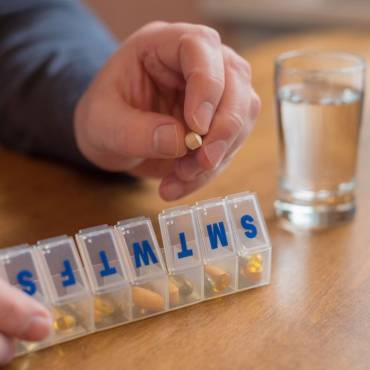A loss of appetite occurs when your desire to eat is reduced or you do not feel hungry. If the condition persists for more than a couple of days, it can lead to weight loss or malnutrition. How to increase appetite? This article provides a list of natural ways to increase appetite.
Loss of appetite and its causes
Have you ever wondered why you need to improve your appetite? No? But you must, because the body requires a certain number of calories from food to survive and function properly. A decreased or loss of appetite can lead to insufficient calorie intake and have detrimental effects on health. Essentially, appetite is essential for the proper functioning of the body. The primary difference between hunger and appetite is that appetite refers to the need to eat to maintain a state of energy balance. But some people wish to gain strength and muscle mass, but they simply do not have an appetite. Kiss of appetite is medically termed as anorexia. This serious condition may happen for a variety of reasons, such as a reduction in activity levels, pain, anxiety, depression, tiredness, some medications, and illnesses. Moreover, it is a proven fact that without having enough calories, people with anorexia will not be able to train as hard as they can and recover adequately. So, how to increase appetite? Various steps can be taken to increase appetite. Let’s have a look below.
Care and treatment
What increases appetite?
The treatment for a loss of appetite typically depends on the underlying cause. Your healthcare specialist may perform blood tests or imaging tests to learn more about the reason(s) behind your symptoms and help treat them. Here are some of the surprising ways that may be helpful to anyone who has been struggling with the inability to gain weight or to develop a healthy appetite:
-
- Eat small meals – Without spending a buck, you can try one of the natural ways to increase appetite. You can eat four to six small meals throughout the day instead of three large ones.
- Eat nutrient-rich foods – Individuals with poor appetites often opt for high-calorie foods, such as chips, ice cream, candy, and baked goods, in an attempt to gain weight. Such types of food items may seem more appetising and contain a high number of calories, but they often lack essential nutrients, including vitamins, minerals, and protein. There are a variety of other foods that increase appetite and provide additional nutrients, including protein and heart-healthy fats. Similarly, you can replace your bowl of ice cream with a cup of plain, full-fat yoghurt. For added sweetness, consider adding berries and a hint of cinnamon. Moreover, if you feel like having a pizza, you can make it at home and add extra vegetables and some protein-rich toppings for added nutrients.
- Break routines – Don’t feel pressured by sticking to a fixed routine of having something at noon or 5:00 p.m. Eat a balanced meal that includes proteins, vitamins, fats and carbohydrates. Moreover, include more foods that increase appetite.
- Overcome the restrictions – A restricted diet may account for a low appetite because the food simply isn’t enticing enough. You can overcome this problem by consulting your doctor, who may be able to lift the dietary limitations, if possible. Furthermore, try to ask your doctor if you can include more of your favourite foods or flavour enhancers in your diet that would encourage you to eat more.
- Avoid fluid intake before meals – Various studies conducted on people have shown that those who drank 2-8 glasses of water before meals lost 5 pounds compared to those who did not. This practice is beneficial for those who want to shed pounds, but for individuals who want to increase their appetite, it should be avoided. Always try to avoid drinking unnecessary liquids before eating. If you feel thirsty, you can take a few sips of water during your meal. This will encourage you to consume larger meals as your stomach will not become full quite as easily.

-
- Exercise, exercise and exercise – There is no doubt that exercise is the key to a fit and healthy body. You can take in both senses. For individuals who consume a lot or are overweight, any form of exercise is beneficial because it helps them burn calories and maintain their fitness. Moreover, exercise is also beneficial for individuals who want to gain weight and increase their appetite. As exercise increases your heart rate and burns calories, it can help you eat more, which in turn can stimulate your appetite.
-
- Vitamin supplements – A study conducted at the University of Chicago has noted a significant increase in children who were ingesting vitamin B supplements. Vitamin B supplements play a significant role in increasing appetite, which in turn leads to higher energy levels, motivating you to be more active if you are participating in an exercise program. However, always consult your doctor before switching to supplements.
-
- Verify the zinc status – Zinc plays a crucial role in regulating a person’s appetite. Studies have found that individuals with zinc deficiency perceive food as tasting differently, which results in a decrease in their appetite. Moreover, zinc deficiency is also linked to other issues, such as halitosis (bad breath) and an overall unpleasant taste in the mouth. If you experience any of these symptoms or the food does not taste right to you, consult your doctor. They will suggest vitamin or mineral supplements that are safe for your health and may help increase your appetite.
Drugs or medicines that help you increase your appetite
Certain medications may help stimulate people’s appetite. These medications to increase appetite are:
-
- Mirtazapine – Mirtazapine is an antidepressant approved by the FDA (Food and Drug Administration) in the late 1990s for the treatment of major depression. Various researchers have found that mirtazapine relieves mood disorders and helps in increasing the appetite of persons who have been previously diagnosed with depression.
- Megestrol (Megace) – Another medication to increase appetite is megestrol, which stimulates appetite and is used for the treatment of anorexia or cachexia. Cachexia is defined as extreme weight loss associated with chronic conditions.
- Oxandrolone (Oxandrin) – Oxandrolone is an artificial testosterone derivative, which promotes weight gain just like the anabolic steroids or naturally occurring testosterone in the body. The medication is often prescribed following infections, severe trauma, or surgery. While this medication is often used to promote weight gain, rather than directly stimulating appetite, it may result in an increased appetite. Oxandrolone can cause changes to cholesterol levels, which may increase the risk of developing atherosclerosis, a condition medically known as hardening of the arteries.
You are not advised to self-medicate. Your healthcare specialist is the only one who should decide to treat your decreased appetite with medications.
Conclusion
Many factors can affect your appetite, including mental health conditions, physical health conditions, medications, and vitamin or mineral deficiencies. However, even small changes can make a huge difference, including making diet modifications and adjusting your meal times. If you have a tough time eating, it is always a wise decision to consult with a healthcare professional, who can advise you on appetite-stimulating remedies and ways to increase hunger.



